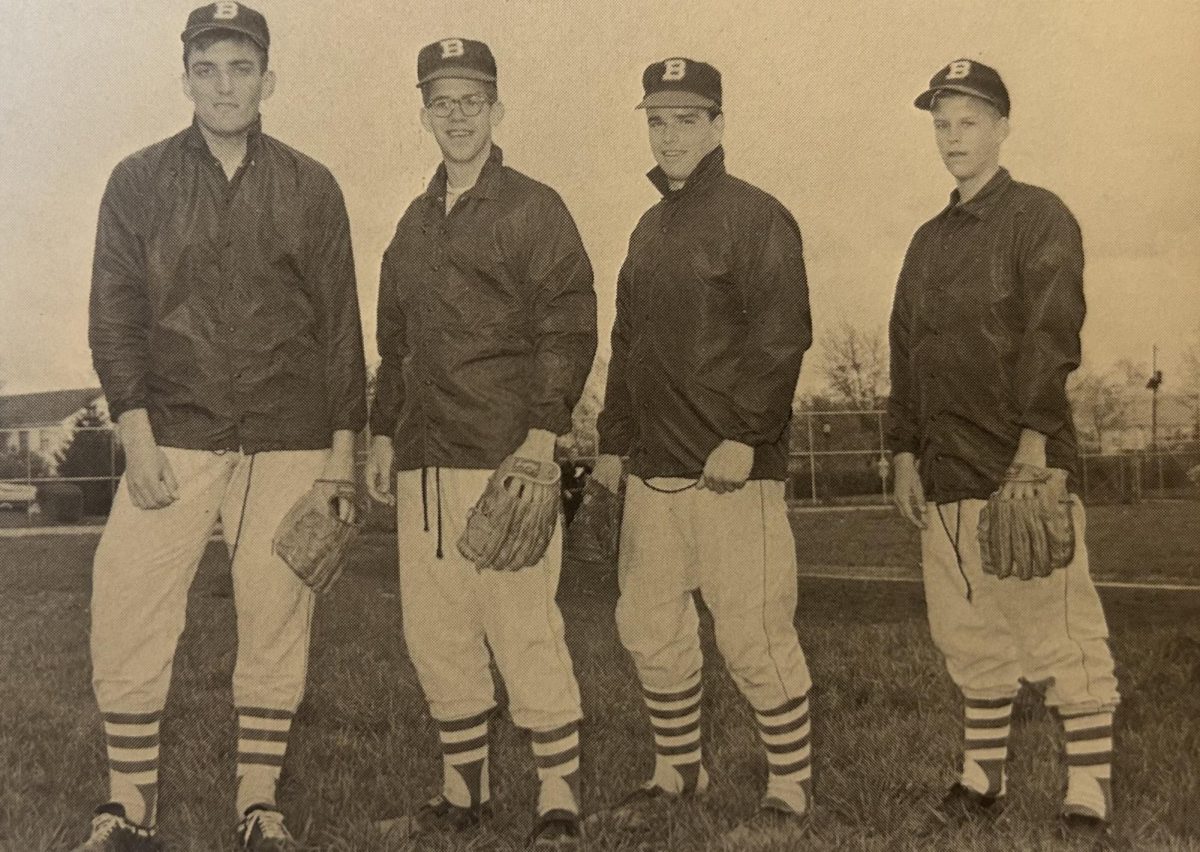The wind roared as junior John Westman’s parents flew down the highway, rushing him to the hospital. John was slumped over in the seat with his shoulder hanging to his side. “Here we go again,” he thought as they approached the hospital. Injuries such as Westman’s occur in high school athletes and impact both the physical and mental health of players.
Westman suffered a broken collarbone and a dislocated shoulder in his soccer game Oct. 6.
Westman explained that the stakes of the game were high, so the game was tense.
There were two players defending him, he said: one behind him, and one running with him. One of the players was next to him and shoved him into the opposing player, he added. Westman said he was lifted off of the ground and landed on his shoulder, injuring himself.
He said he was affected both physically and mentally from the season-ending injury.
“Missing a couple days of school really impacted my workload, and I really felt down walking onto the field knowing I couldn’t play,” he said.
Westman added he felt anxiety waking up in the morning and not being able to be active.
Senior Gus Pitstick felt similarly after suffering an ACL tear and a partial medial meniscus tear during a football game this October. He collided with the opposing player and his leg twisted the wrong way, leaving him in a brace and on crutches.
An ACL tear can have a long and brutal recovery process, as it can affect running and jumping mechanics, Pitstick explained. He added that he was left in an insurmountable amount of pain.
“My recovery is anywhere from seven to nine months, depending on how the healing process goes,” he said.
Both athletes said they had similar approaches to their mental health post-injury. Pitstick explained he was devastated to hear the news that his football season was coming to an end and his last lacrosse season may be in jeopardy. Likewise, Westman said he was frustrated to have his season end prematurely.
Westman said he felt the injury served as a learning opportunity for him.
“While my style of play won’t change, I really got to step away from the field and see a different perspective from the sidelines,” Westman said.
Junior Sofie Sheridan has faced a recurring injury throughout her high school career.
Sheridan’s first glimpse of injury surfaced during her freshman year, she said. She explained that it occurred during extremely cold weather, and due to a lack of stretching, she suffered a pulled hamstring and groin.
Sheridan’s injury has affected her both physically and emotionally this soccer season, she said.
“I know my position on my team, so once I get hurt, I feel as if I let my team, coaches and family down,” she said.
Trainer Jesse Padgett said that he has struggled with sports injuries as well. Padgett explained that he was pitching in a baseball game, and after throwing a pitch, he had a line drive hit back at his face. He suffered fractures in both orbital bones, a broken nose and a concussion, he said.
“I wasn’t able to throw strikes,” he said. “I had no control.”
Padgett also said he felt as if his performance levels after his injury were affected, as it took him months to recover.
Sheridan also felt frustrated because she knew it would be a challenge to recover and for her to return to playing at the same skill level as she could before she had her injury, she explained.
Pitstick said that he expects that the injury will affect him greatly due to much less communication with teammates and less physical activity.
For injuries like Padgett’s, no physical therapy was required. However, mental recovery still affects him, he explained.
“It was more of a subconscious issue,” he said. “I never felt scared playing. When I was able to return, throwing strikes was a challenge. I could throw strikes during warm-ups, but couldn’t come close to the plate when a batter stepped in.”
Despite the challenges, sports injuries can also serve as a chance to work on oneself as a person and help better understand themselves, Westman explained.
Padgett also believes that there is a lasting impact from sports injuries.
“I think the injury was a learning experience,” Padgett said. “It taught me that I wasn’t invincible.”


















